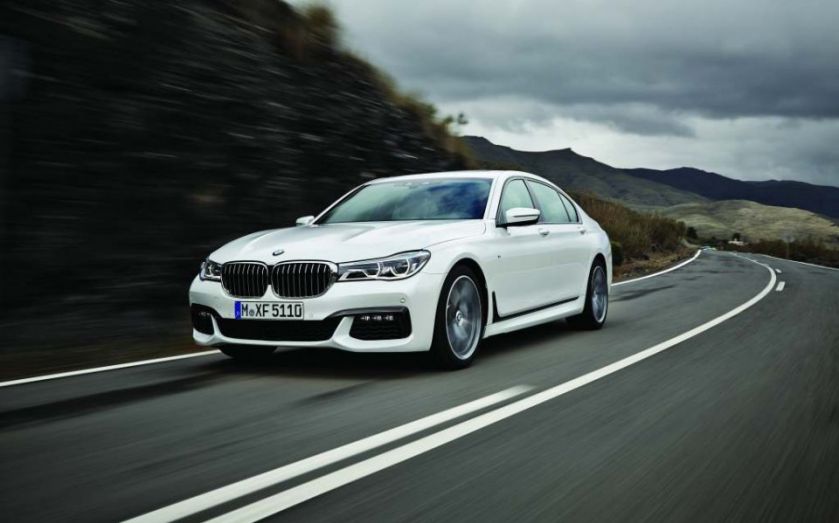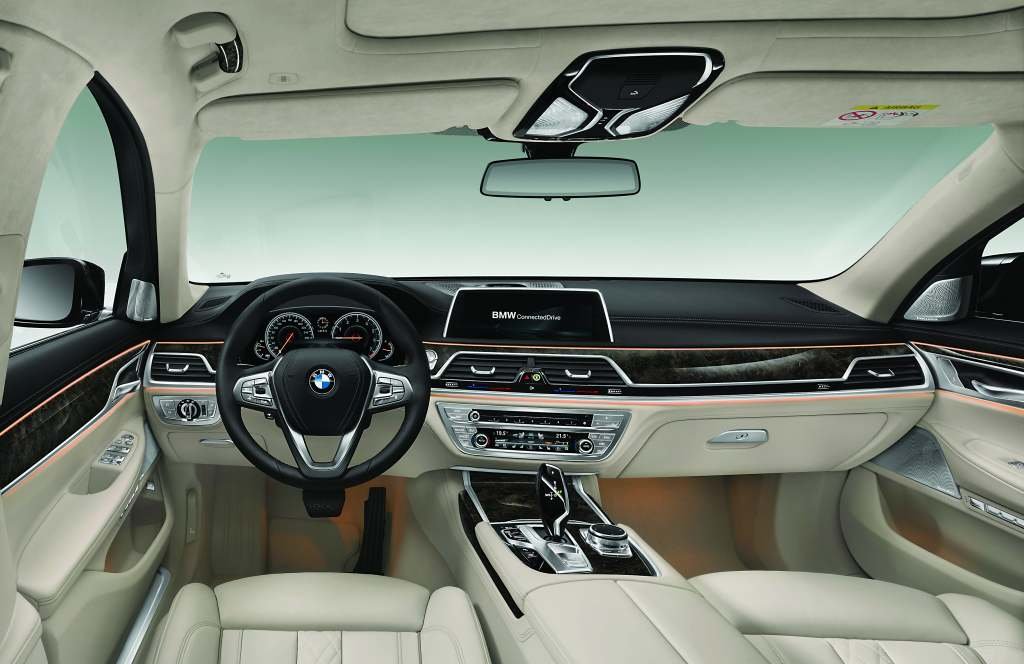Car review: BMW’s futuristic new 7 Series lets you talk to your car using hand signals

From city traders to third-world dictators, the Mercedes S-class has traditionally been the default limo of choice. BMW’s 7 Series won fans among those who prefer to drive than be driven, but it could never match the S-class for all-round appeal.
The new 7 Series, though, could take the lustre off Mercedes’ three-pointed star. It’s lighter and more efficient than the car it replaces, yet still fabulously, decadently luxurious. We flew to BMW’s top-secret proving ground in southern France to sample a final prototype, before it goes on sale this October.
It’s clear the Bavarians played it safe when styling their new flagship. That’s understandable – luxury car buyers are a conservative bunch – but also somewhat disappointing. After the head-turning i3 and i8 hybrids, the 7 Series looks a bit BMW-by-numbers.
However, it’s anything but conventional under the skin. The original 1987 7 Series famously packed more computing power than NASA used to send a man to the moon. This sixth-generation model could probably unravel quantum physics, given half a chance.
Fortunately, making use of that technology is easier than you might think. BMW’s already-excellent iDrive infotainment system gains a touchscreen for the first time, with swipe and pinch-to-zoom capabilities like an iPad. There’s also voice control, and you can perform certain functions using pre-defined hand movements.
We tried this so-called “gesture control” and, having successfully resisted the urge to make rude hand signals at the camera, found it very effective. You can twirl your finger to adjust the audio volume, prod the dashboard to navigate to home or give a nonchalant wave to reject an incoming call. It takes a bit of practice, but unlike much of the tech on modern cars, it actually improves safety by allowing you to keep your eyes on the road.

Inside the BMW740LI
Our test car was a long-wheelbase 740i. Its straight-six turbo petrol engine won’t make it especially popular in the UK, where the diesel 730d dominates sales, but it’s quick and very refined. Big efficiency gains are promised, too, although BMW remains tight-lipped about figures for now.
Our 7 Series wasn’t allowed to leave the confines of the test track. However, we tried it on a wide variety of roads and surfaces, from handling circuit to high-speed bowl. It’s clear this is no wafty, luxury barge. For a big car, the BMW changes direction with admirable agility. That’s partly due to lightweight aluminium panels and a super-stiff carbon-fibre-reinforced passenger cell. Together, these contribute to a 130kg weight saving – about the same as two average-sized adults.
Standard air suspension with dynamic damper control also helps. Flicking between Comfort and Sport modes changes the character of the 7 from boulevardier to B-road blaster. Or you can switch to Adaptive and let the car decide by assessing your driving and using GPS data to see what kind of road you’re on. It really does seem to offer the best of both worlds.
Lastly, no car this size will be easy to park, yet BMW has a world-first solution – parking by remote control. Using the key fob, you can step out and let the car park itself, even squeezing into spaces too narrow to open the doors. How the non-BMW driver next to you is then supposed to get out of their car is a separate problem.
On sale this autumn, the new 7 Series might not move the game on in terms of style, but for dynamics and user-friendly technology, it’s still the keen driver’s choice.
Tim Pitt works for motoringresearch.com
THE FACTS: BMW 740LI
PRICE: £70,000
0-62MPH: 5.6 secs
TOP SPEED: 155mph
CO2 G/KM: 180g/km
MPG COMBINED: 37mpg
THE VERDICT
DESIGN ★★★☆☆
PERFORMANCE ★★★☆☆
PRACTICALITY ★★★☆☆
VALUE FOR MONEY ★★★★☆